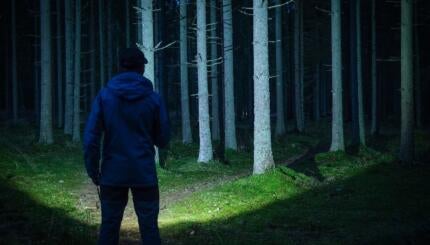I have had many feelings since the recent election, but the one that surprised me most was a sudden awareness that there are things I imagined I would see in my lifetime that I now know I will not. Even as I say this, it seems stupidly obvious. But the sensation of it, the certainty in it, was new to this perennially hopeful writer.
I have lived my life believing that the world worth having would be had, and that I would witness it. I come by this stance honestly. I grew up in a time of postwar optimism, and the modest privileges of my upbringing allowed me to maintain the sense (or the illusion) that things would always get better. In my experience, time was progress and progress, like time, was inevitable.
In adulthood, my belief in this forward momentum became more nuanced. But I still believed that over time, given enough time, there would be more love, more care, more freedom, more self-expression, more peace and more healing of ourselves and the planet.
This belief was further bolstered by the Reform Jewish culture I grew up in. Reform Judaism had swapped out the traditional Jewish belief in a messiah who will bring redemption to the world and replaced it with a vision of a better world of our own making — a messianic era rather than a messiah. The widespread use of the phrase tikkun olam in the last half century to mean the pursuit of social justice is an example of this replacement of the messiah with a vision of political and social repair.
With your help, My Jewish Learning can provide endless opportunities for learning, connection and discovery.
In some moments, I envy those who hold a belief in an actual messiah, descended from King David, who will be sent by God at the appointed hour to bring peace and resurrect the dead. Believing in that messiah only requires faith. But the alternative, a messianic era of our own making, requires skill, and I now fear that skill is beyond us.
So I am left wondering how much stock to place in the future at all.
Our sages were staunch believers in the messiah and the future he would bring. And yet, the Talmud is ambivalent about the impulse to pin down exactly when that is going to happen. In Tractate Sanhedrin, the Talmud reports the calculations of several rabbis about when the messianic era will begin. Then in the next breath, the Talmud announces that none of those predictions are correct. Plus, it adds some cautions. Rabbi Zeira warns that focusing on the messiah’s ETA will only delay it. Instead, we need to focus on other things, the way you might distract yourself when looking for your lost keys (or when you’re stuck on the day’s Wordle).
Rabbi Yonatan goes even further. He says that those who try to foretell the coming of the messiah should be cursed. If you calculate it and then he does not come, he says, it will lead the people to cease believing. Instead, the sages want us, in the words of Hamilton, to “wait for it, wait for it, wait for it.”
It is natural to reach for a better future, to long for it and try to spot it on the horizon. But the Talmud deflects us and demands that we stay in the moment we are in. Maybe that is the important lesson for me right now, not to look to the future to bring the big redemption — or even the small ones. Maybe the task for me is to let go of the directionality and redemptiveness of time, to gently set down that arc of history that is supposed to bend toward justice, but alas at a rate hard to perceive.
The Talmud does not want us living in the future. The future will bring wonderful and it will bring horrible. But we cannot count on the future to redeem us from our present conditions and circumstances. All we have is the now.
So I am letting go of riveting my gaze on the future and recommitting to the here and the now. While I don’t know if we can bring about a world of peace and justice down the road, I do know we can act for peace and justice now. We can make today’s actions downright messianic. We can draw tikkun olam out of our lofty imaginations and place it into our hands and rolled-up sleeves. We can transform our prayers for the future into our practices for today.
Every day: an act of kindness. Every day: an act of courage. Whatever the day requires of us, that is what we can do. Stand up. Speak up. Support the most vulnerable in our families and communities. Mourn. Struggle. Celebrate. Whatever the day requires.
I will no longer try to foresee when the better world will arrive. Elsewhere in the Talmud we are told, “All who force time are forced back by time, and all who yield to time find time standing at their side.” I have no choice but to yield to time. Time will continue whether my hopes are fulfilled or dashed or fulfilled long after I’m a memory. All I can do is be the best human I can today and each and every day afresh, and not demand that time do the heavy lifting. And maybe, just maybe, by doing so, I will find time standing at my side.
This article initially appeared in My Jewish Learning’s Shabbat newsletter Recharge on November 23, 2024. To sign up to receive Recharge each week in your inbox, click here.



